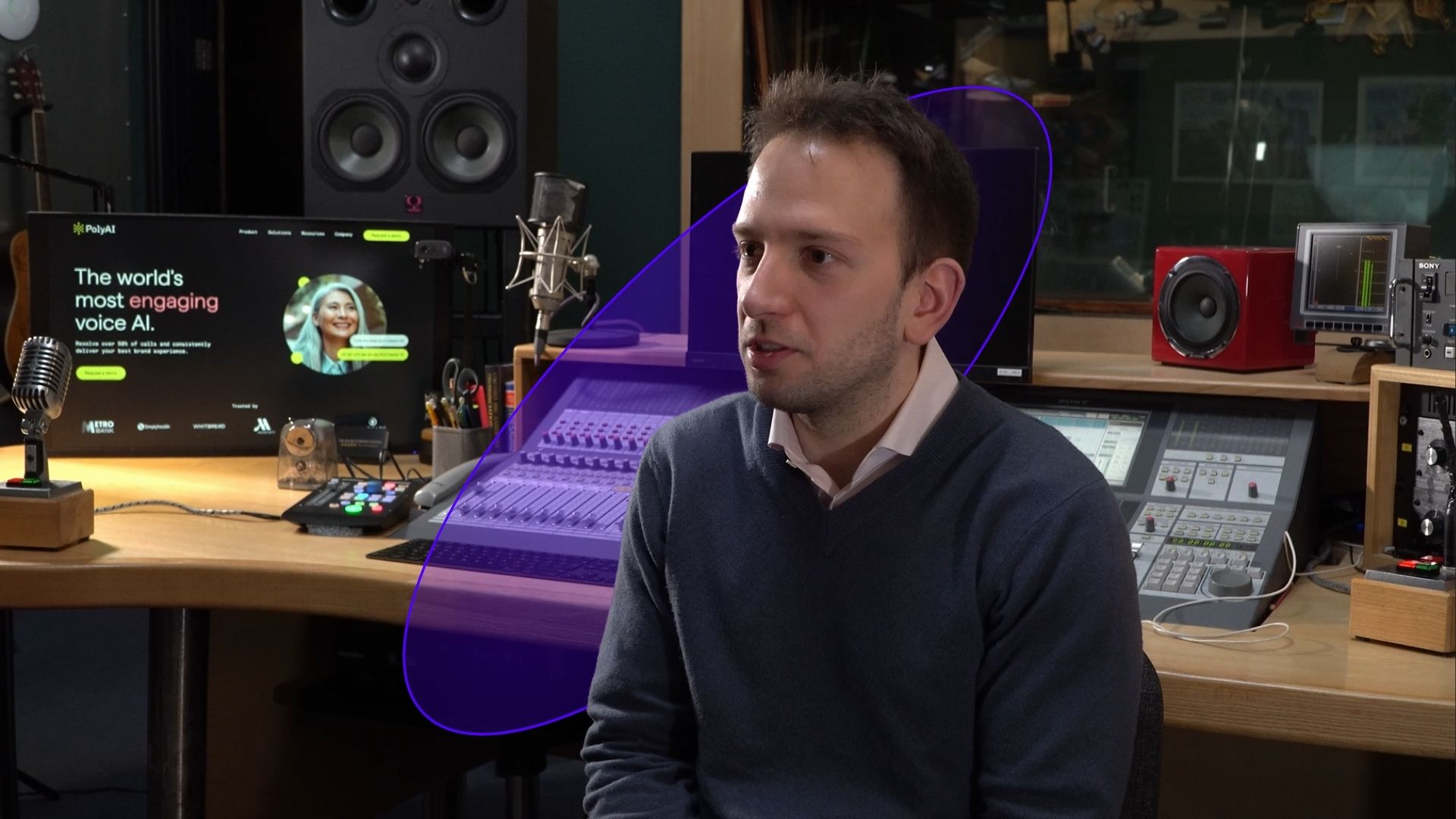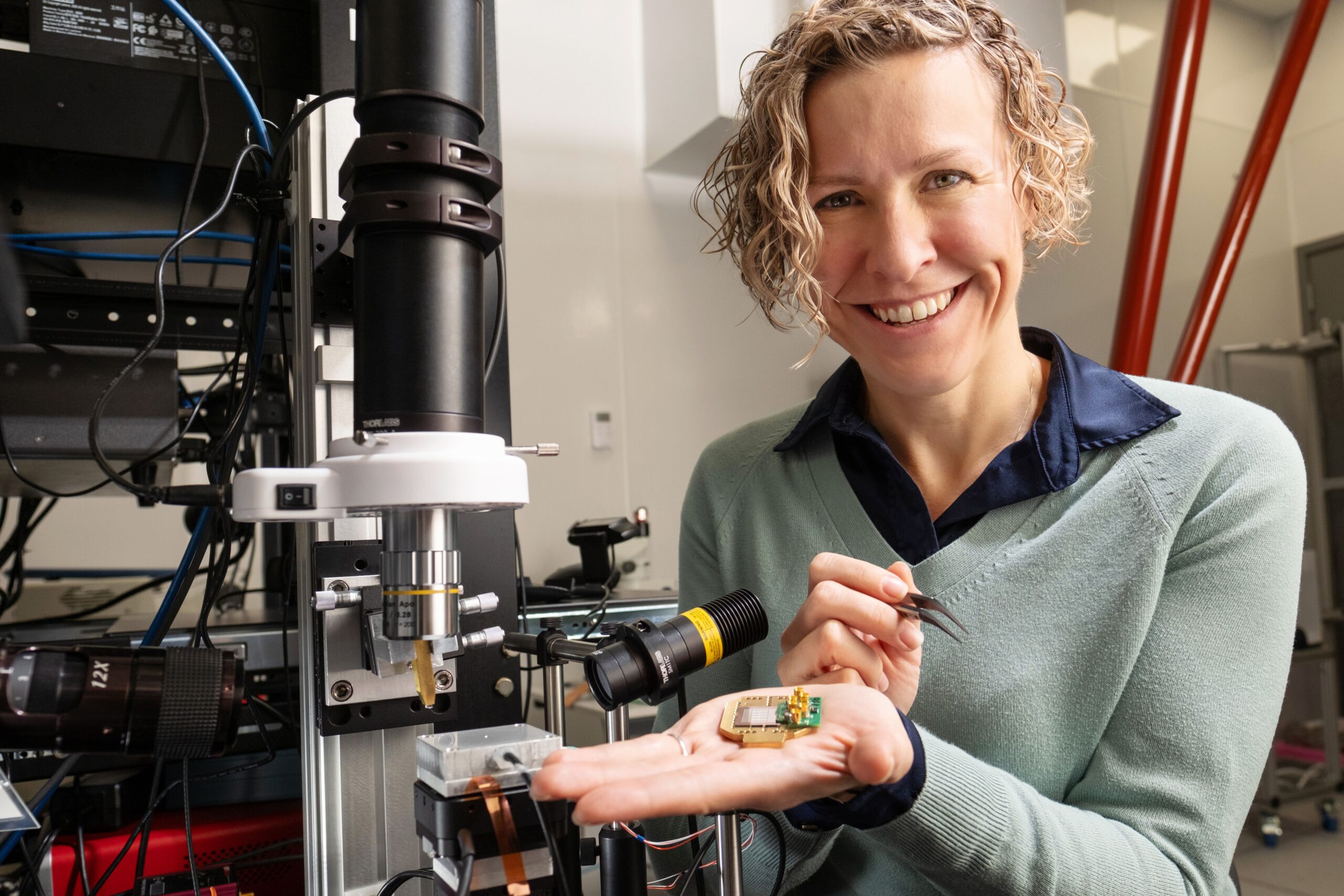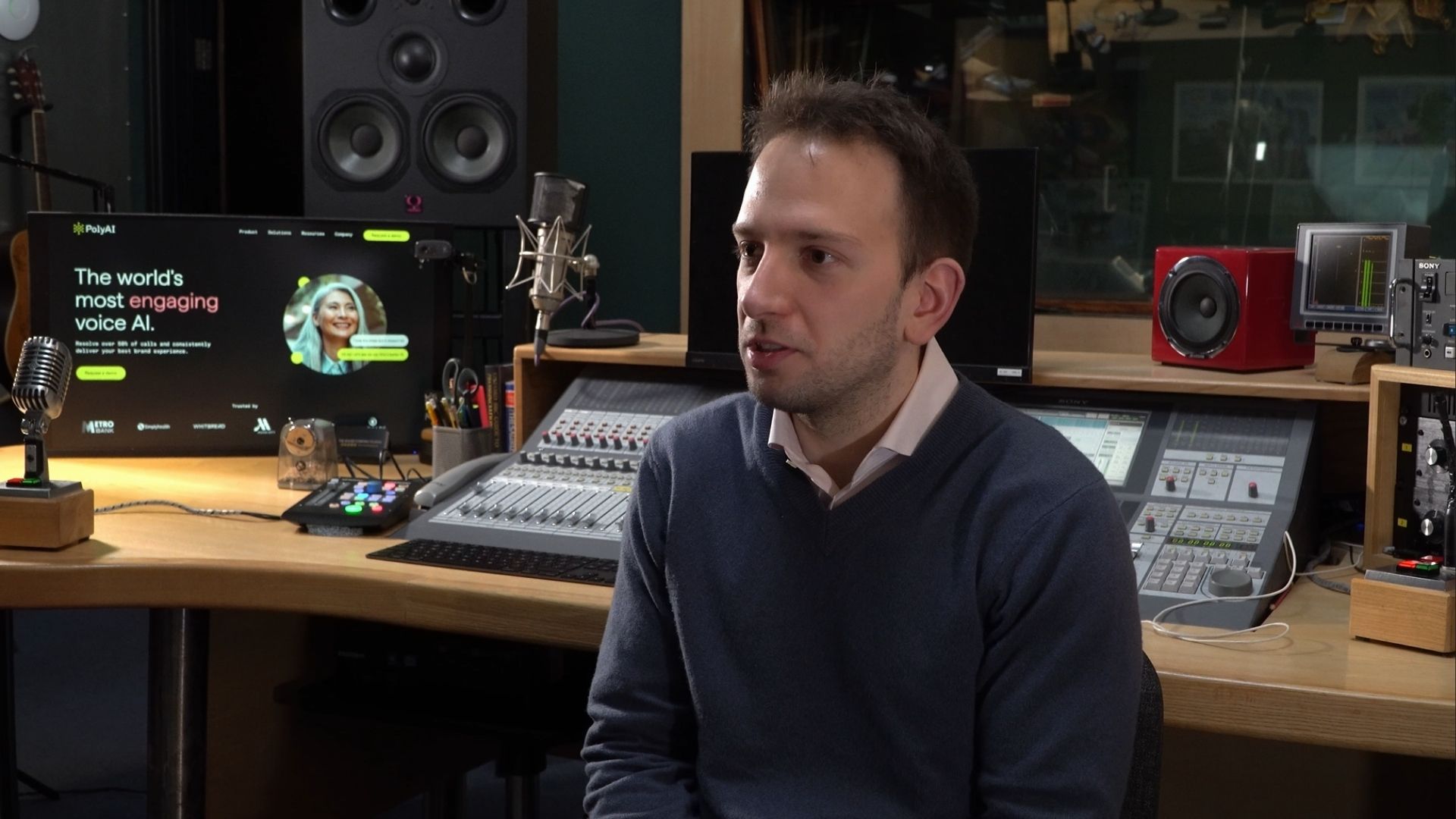In the summer heat of Belgrade, a teenage boy wandered from café to café with a stack of freshly printed sci-fi stories. “Good afternoon,” he’d say, “I’m an aspiring young writer.” Some people waved him off. Others paused. A few listened. By the end of the week, he’d made more than his country’s monthly average salary.
Nikola Mrkšić didn’t realise it then, but he was rehearsing for something far bigger: convincing the world that robots can hold a conversation—and that people might even enjoy it.
Fast forward over a decade, and he’s the co-founder and CEO of PolyAI, the London-based company building voice AI agents that sound so human, callers often apologise mid-sentence for being rude to “the person” on the other end.
But getting there wasn’t straightforward. And it certainly wasn’t obvious.
From Tito to Trinity
Nikola was born in 1991, two months before Yugoslavia began to fall apart. His parents, like many of their generation in Eastern Europe, watched institutions crumble around them. “It created a generation that was just hungry to succeed,” he says. “Everyone had something to prove.”
For Nikola, proving himself started early. He was a maths prodigy in a fiercely competitive grammar school, designed by Josip Broz Tito to rival the Soviet Union in academic output. “You left that school basically doing undergrad-level maths,” he says. “Tiger parenting and tiger education.”
He dreamed of studying in the US, drawn to the liberal arts model and its promise of creating “Renaissance men”. But when his friends applied to Cambridge, he thought, why not? He landed a full scholarship—and never looked back.
Escaping PowerPoint
After Cambridge, Nikola flirted with the well-trodden path. An internship at Credit Suisse, a plan to move to London, the kind of high-achieving, low-risk trajectory you might expect. But then his master’s supervisor, machine learning legend Zoubin Ghahramani, offered a warning: “Don’t just go and become a PowerPoint monkey.”
It stuck.
Soon after, Nikola met Steve Young and Blaise Thomson, who were building VocalIQ, a voice tech startup backed by Amadeus. He joined as an early team member while simultaneously doing a PhD under Steve’s supervision.
The experience lit a fire. “The ownership, the camaraderie—that was it. I was hooked.”
Rebuilding Voice AI from the Ground Up
After Apple acquired VocalIQ, Nikola, along with two fellow researchers from Taiwan, Tsung-Hsien Wen and Pei-Hao Su, decided to go deeper. They started PolyAI with a simple mission: to build voice assistants that don’t make customers feel like second-class citizens.
The early years were pure grind. “We were three technical co-founders trying to commercialise deep tech,” he says. “We rebuilt the entire infrastructure for voice assistants from scratch.” The result was a platform that doesn’t just recognise speech—it understands it, adapts to it, and answers like a human would.
The first big breakthrough came with Whitbread, owners of Beefeater and Premier Inn. “We tested it in London pubs, approaching people to try our system. One guy said, ‘I don’t want to help AI. It’s going to destroy us all.’” Others were less sceptical. Over time, results spoke for themselves.
Today, PolyAI powers voice assistants for some of the world’s largest enterprises, from hospitality to utilities. With attrition rates of 200% in contact centres and growing demand for 24/7 support, the market need is clear. The challenge is making the experience seamless—and likeable.
Sci-Fi With a Sales Funnel
If sci-fi inspired Nikola as a child, his first experiences of enterprise sales taught him patience. “You show up with research papers on deep learning, and they’re like, ‘How does this help me run a utility company?’” he says. “So, you say, ‘Dream with me a little.’”.
It only took a few dreamers before he had the case studies needed.
That dream is now reality. PolyAI’s systems handle millions of calls, sound indistinguishably human, and are tailored to a client’s brand voice—down to the accent, vocabulary, and tone.
“One of our clients wanted a strong Texan voice. We gave them a demo that opened with ‘Howdy’ and they said, ‘This is borderline offensive—but we like the direction.’”
The Inflection Point
For years, Nikola worried they were too early. Then came ChatGPT. Overnight, PolyAI’s inbound leads quadrupled. “The world was suddenly ready to believe in this future,” he says. “We went from being a weird company to one with a target on its back.”
Competitors are multiplying. But PolyAI remains ahead, with proprietary models, strategic autonomy, and a customer-centric approach that goes beyond tech. “People talk about latency and accuracy. We focus on design—how you make users feel. That’s what wins.”
The Future on the Line
For Nikola, AI isn’t just a tool—it’s a way of rethinking what’s possible in customer experience, education, and healthcare. But he’s clear about the path forward.
“This technology’s been around for years. Siri’s over a decade old. But it’s always been a gimmick.”, “Now, finally, it’s becoming infrastructure.”
Still, some things don’t change. “I guess I started off there by selling sci-fi and lo and behold, 15 years later, I’m still doing the same thing with voice assistants for large enterprises.”
The stories have changed—but the ambition, and the imagination, remain.




